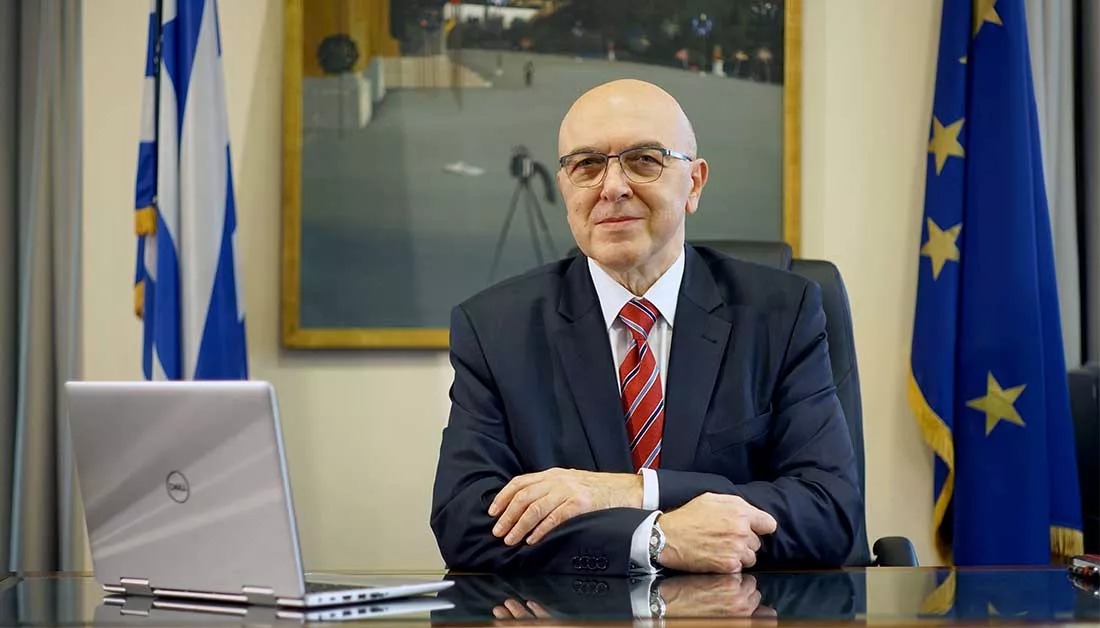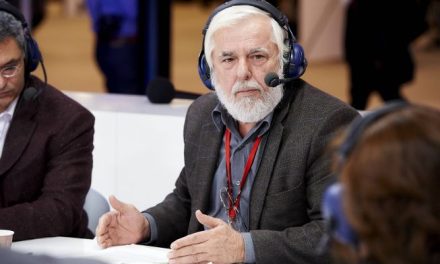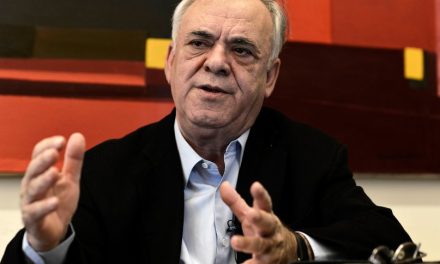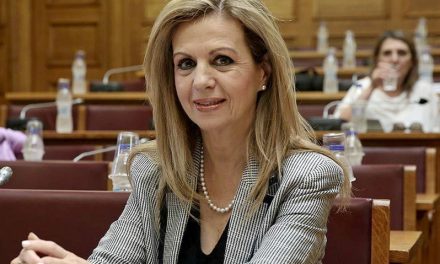Deputy Minister of Foreign Affairs for Economic Diplomacy and Openness, Kostas Fragogiannis, writes in newspaper ‘To VIMA tis Kyriakis” (24.09.2023) on Greece´s plan to adopt sustainable development goals and the role Economic Diplomacy plays in that plan, by adhering to a triptych of objectives: boosting exports, attracting investments (mainly in the fields of innovation, technology and green energy) and enhancing Greece’s international presence and role. As mr. Fragogiannis explains, one structural feature of the government’s agenda is that development should be more outward-looking, more investment-led and less consumption-led, based on innovative sectors of the economy and exports of high-tech products and services.
Furthermore, when it comes to Greece´s role in addressing the climate crisis, the deputy minister explains that, to ensure both the sufficiency and the security of resources, the country´s energy policy is already geared towards international cooperation, in order to ensure interconnectivity and alternative energy sources and routes. To this end, Greece encourages innovative projects that make use of new, clean technologies. Notable examples include the new and under construction energy management, storage and distribution infrastructures (the FSRU Alexandroupolis, the SRU Revithoussa, the Trans Adriatic Pipeline-TAP and the Interconnector Greece Bulgaria-IGB) as well as our country’s very recent decision to become the 13th member of the Three Seas Initiative, which pertains to the energy interconnection of European countries around the Adriatic, Baltic and Black Seas.
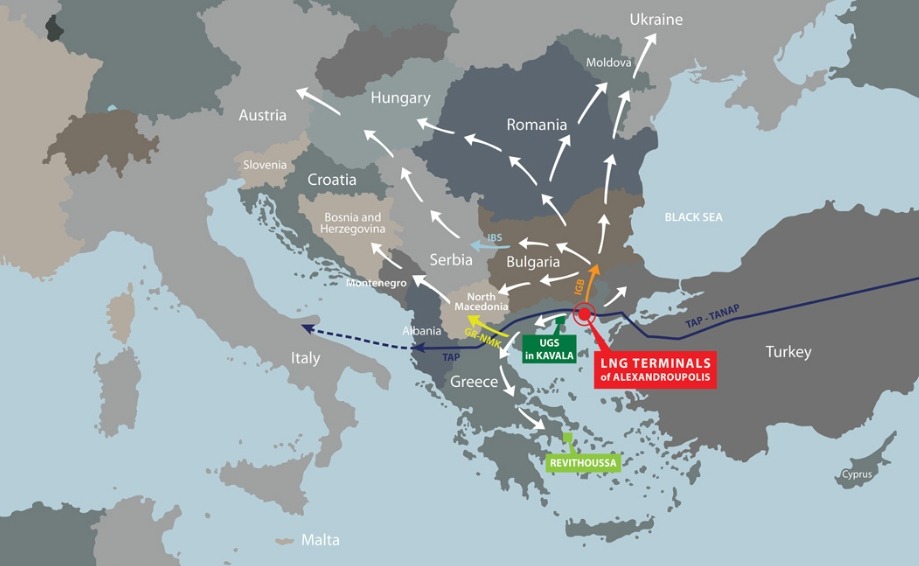
Read the entire article translated to English below:
Natural disasters, outbreaks of violence, health crises, extremities- our country and the entire planet are continually tested by a seemingly endless list of events and phenomena. Addressing these challenges promptly and effectively requires, inter alia, a constant redefinition of governmental priorities.
Undoubtedly, the top priority for any government always remains the protection of human life and the management of the humanitarian dimensions of every crisis. At the same time, though, what is of utmost importance and absolutely necessary, is a long-term, yet flexible planning aimed at the prevention and the optimal response to challenges.
So, what role can Greece play in addressing the climate crisis? And how is Economic Diplomacy involved?
Let me remind you that in the government’s collective and systematic effort to put the country back on a growth track by changing the production model of the economy, always with respect to the environment, Economic Diplomacy contributes by promoting the following triptych of objectives: boosting exports, attracting investments (mainly in the fields of innovation, technology and green energy) and enhancing Greece’s international presence and role.
Both the financial data and indicators, as well as our country’s active presence on the international stage, attest to the fact that our efforts are bearing fruit. The recent restoration of investment-grade status by one of the top four international credit rating agencies is yet another step towards the strengthening of the Greek economy.
It is true that the steps taken, although significant, seem to diminish in value in light of the tragedies caused by this summer’s unprecedented natural disasters. Nevertheless, the recent severe setbacks and the identified weaknesses of the state apparatus should not overshadow the progress that has been achieved in both reforms and the overall improvement of the living standards and prosperity of our citizens. On the contrary, the stake is to address any weaknesses and deficiencies rapidly, allowing the country to quickly return to normalcy and the government to advance its long-term development agenda for the benefit of all citizens.
A structural feature of this program is that development should be more outward-looking, more investment-led and less consumption-led, based on innovative sectors of the economy and exports of high-tech products and services.
This is the kind of development we have promoted over the past four years and continue to systematically promote today. And this is the development that, in the midst of crises and great economic and political volatility internationally, has strengthened our country’s position and reputation. Now, Greece stands as a pillar of stability and prosperity in the wider Southeast Mediterranean region and serves as a significant gateway to the European market.
Lastly, this development aligns with the dual role that Greece seeks to play in the collective, global effort to tackle the climate crisis, both practically and symbolically.
On a practical level, it reflects the energy policy that we are already implementing. In order to ensure both the sufficiency and the security of resources, we promote international cooperation aiming at interconnectivity and securing alternative energy sources and routes. To this end, we encourage innovative projects that make use of new, clean technologies. Notable examples include the new and under construction energy management, storage and distribution infrastructures (the FSRU Alexandroupolis, the SRU Revithoussa, the Trans Adriatic Pipeline – TAP and Interconnector Greece Bulgaria – IGB) as well as our country’s very recent decision to become the 13th member of the Three Seas Initiative, which pertains to the energy interconnection of European countries around the Adriatic, Baltic and Black Seas.
Equally significant is Greece’s symbolic role. As the birthplace and symbol of democracy, dialogue and diplomacy, aimed at achieving convergence, our country can assume a new dynamic role, further bolstering its standing on the international stage. It is with this central slogan – Democracy, Dialogue, Diplomacy: three Greek words starting with “D” with a global meaning – that we, as a country, seek our election as a non-permanent member of the United Nations Security Council for the 2025-26 term.
Global crises and challenges demand global solutions and convergence. Perhaps the climate crisis is an opportunity for us to reconsider and reevaluate the significance and the very essence of collaboration, at the national, regional and international levels.
I.L. with information from mfa.gr

